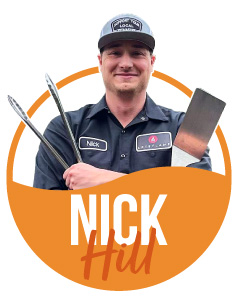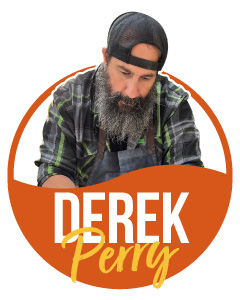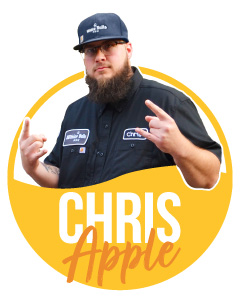Choosing The Best Charcoal To Use In Your Smoker

If you’re all about the delicious smoky flavor you get from your meat on your charcoal grill, you would think that’s all there is to it, right? Well, not exactly. That’s only part of the story.
You need to use the best charcoal for smoking if you want to get the most out of your grilling experience. You’re now thinking is there such a thing? Well, any barbecue connoisseur will tell you that if two grillers go head-to-head in a steak grilling contest using the exact tools and applying the same techniques, the one who is intentional about the kind of charcoal they use will certainly come out on top.
With so much misinformation out there about choosing the best charcoal for smoking, this guide is here to set the record straight. Here’s everything you need to know.
How To Choose The Best Charcoal For Smoking 101: Know Your Coal
Before exploring the top qualities of the best smoking charcoal, it’s important to understand the various types that exist in the first place. The following are the two main categories of charcoal you'll come across in the market.
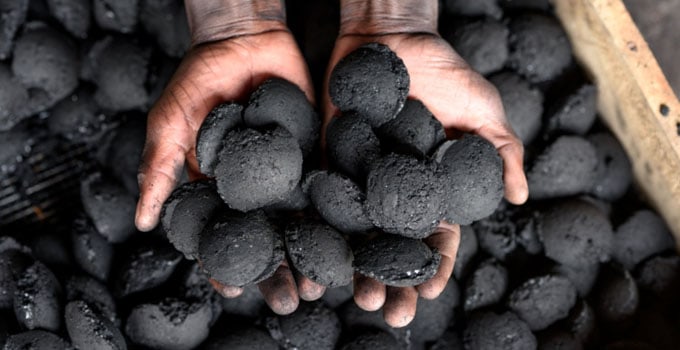
1. Briquettes
This is perhaps the most familiar and easily recognizable charcoal to most people who smoke. Briquettes are essentially wood chips and sawdust that have been compressed and bound together using a neutral agent. If you’re a newbie to smoking, this is the best fuel source to use.
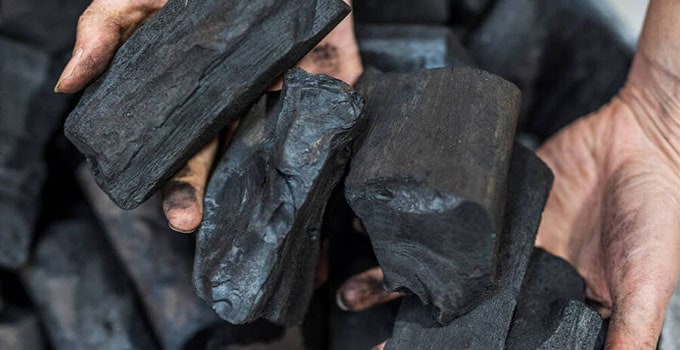
2. Lump
Once you’ve mastered the briquette technique, you’re now ready to graduate to the next level of smoking: lump charcoal. Purists might argue that this is the most authentic form of smoking. Lumps are derived from chunks of hardwood and burn hotter and longer than briquettes.
Does The Charcoal Contain Any Additives?
Here’s a little charcoal grilling pro tip for you: It doesn’t matter if you buy the best premium charcoal for your smoker grill. If you use toxic and overbearing chemicals to get the fire going, then it’s all a zero-sum game. In the end, that’s the flavor that gets infused into your meat. So unless you have a thing for chemical-flavored meat, it’s always better to stay away from lighter fluids and try to be as natural as you possibly can when starting the fire.
This also includes staying away from self-starting charcoal that has lighter fluid additives infused in them or those that promise to give your meat an authentic “hickory” flavor. This is more common in briquettes than in lump charcoal. Real charcoal doesn’t have flavors. If that’s what you’re after, then you should use real wood chunks in your smoker.
Can It Maintain A Steady Temperature?
Temperature regulation plays a huge role in the grilling process. You want to use charcoal that maintains a steady temperature throughout with no huge peaks and deep valleys. Conventional lump charcoal burns hotter than briquettes but is also more likely to break apart and lose their temperature faster. On the flip side, though, lump charcoal burns way hotter than briquettes, so it is ideal if you have food that requires scorching high temperatures to cook.
How Much Does It Cost
The price of briquettes compared to lump charcoal varies depending on the region you’re in. The consensus is that briquettes are cheaper than lump charcoal. This is because they are manufactured from recyclable materials, which are often waste products (like sawdust) derived from other processes.
However, there are regions where lump can be purchased as cheaply as briquettes if hardwood trees are in abundant supply. In lump-deprived regions where it is much harder to find, the short supply is likely to drive up the price. The choice of the best charcoal to buy ultimately rests on how often you grill, as well as, how deep your pockets are.
How Long Does The Charcoal Burn For?
Since briquettes burn at a steady rate with no extreme temperature fluctuations, they tend to burn for longer than lump charcoal, which disintegrates quite easily. If you combine this feature with the fact that they are affordable, it means that you won’t be spending a large chunk of your grilling budget on fuel. You can use a larger portion of it to buy the actual meat!
On the downside, briquettes produce a pretty decent amount of ash. If you don’t like the cleanup process that comes after charcoal grilling, this could be a deal-breaker for you.
Figure Out What’s Most Important To You
Choosing the best charcoal for smoking ultimately boils down to your flavor preference, your budget, its ability to maintain the desired temperature, and how long it burns for. Most brands typically list this information on the packaging. However, use this article as a general guide to help you determine what matters the most to you so that you can decide which type of charcoal you’ll go with.
Would you rather avoid the hassle of charcoal grilling and get a gas grill instead? Check our blog for everything you need to know about buying a gas grill.



